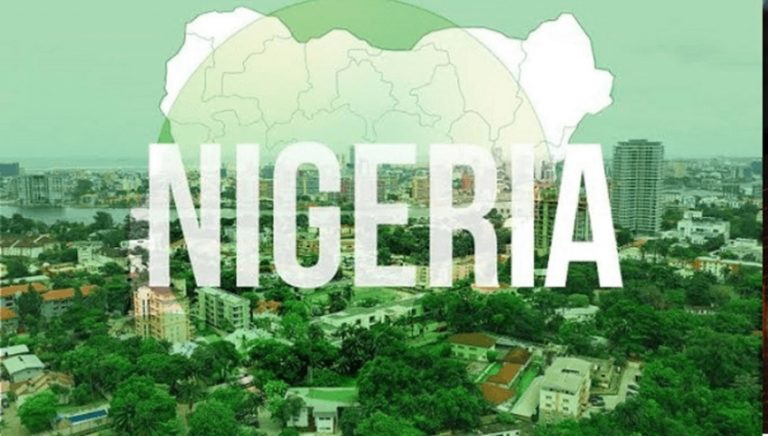
In what appears to be one of the most radical proposals in Nigeria’s political history, the House of Representatives Committee on the Review of the 1999 Constitution has put forward a plan to create 31 additional states, bringing Nigeria’s total to 67 states.
The proposal was presented during plenary on Thursday by Deputy Speaker Benjamin Kalu, who read a letter from the committee detailing the proposed new states. The suggested creations span all six geopolitical zones, with some regions set to gain multiple new states, including Kogi and Benue, which could be split into three separate states each if the proposal is approved.
The Proposed New States Across Nigeria
North-Central:
Benue Ala (from Benue State)
Okun (from Kogi State)
Okura (from Kogi State)
Confluence (from Kogi State)
Apa-Agba (from Benue South Senatorial District)
Apa (from Benue State)
Federal Capital Territory, Abuja (to be recognized as a full-fledged state)
Register for Tekedia Mini-MBA edition 19 (Feb 9 – May 2, 2026).
Register for Tekedia AI in Business Masterclass.
Join Tekedia Capital Syndicate and co-invest in great global startups.
Register for Tekedia AI Lab.
North-East:
Amana (from Adamawa State)
Katagum (from Bauchi State)
Savannah (from Borno State)
Muri (from Taraba State)
North-West:
New Kaduna and Gurara (from Kaduna State)
Tiga (from Kano State)
Kainji (from Kebbi State)
Ghari (from Kano State)
South-East:
Etiti (as the 6th state in the South-East)
Adada (from Enugu State)
Urashi (as the 6th state in the South-East)
Orlu (from the South-East region)
Aba (from the South-East region)
South-South:
Ogoja (from Cross River State)
Warri (from Delta State)
Bori (from Rivers State)
Obolo (from Rivers and Akwa Ibom States)
South-West:
Toru-Ebe (from Delta, Edo, and Ondo States)
Ibadan (from Oyo State)
Lagoon (from Lagos State)
Ijebu (from Ogun State)
Another Lagoon (from Lagos and Ogun States)
Another Ibadan (from Oyo State)
Oke-Ogun and Ife-Ijesha (from Ogun, Oyo, and Osun States)
Unexcited Nigerians See A Scheme for More Political Looting
However, rather than excitement, the proposal has been met with widespread skepticism, as many Nigerians see it as yet another ploy by politicians to expand their empire of looting rather than improve governance.
Given that almost every governor in Nigeria has a corruption case, citizens argue that this will simply create 31 more corrupt politicians with access to public funds.
It is believed that politicians want to create more states because it means more governors, more commissioners, more senators, and more federal allocations that will go straight into their pockets.
For many, the current 36 states and the Federal Capital Territory (FCT) have failed in governance, struggling with unpaid salaries, decaying infrastructure, and poor service delivery.
“Who bewitched Nigeria! When we should be talking about merging the existing states that have proved not viable over time, some not-so-engaged reps members are talking about creating 31 more states in Nigeria,” a social media user noted.
Rather than addressing these issues, lawmakers are more concerned with creating new states, which would come with the burden of setting up new administrative structures, electing new governors, and creating new House of Assembly members. All against the backdrop of the high cost of governance.
“31 more state with each having 3 senators! With the present economic situation in this country, do we have the resources to fund 202 senators at the upper Chamber?” another social media user asked.
Many Nigerians and governance experts have urged lawmakers to focus on fixing Nigeria’s existing governance problems instead of multiplying them. Most Nigerian states are financially dependent on monthly federal allocations, which means they will cease to function without Abuja’s allocations.
Among the many backdrops of the states’ dependence on federal allocations is the inability of many of them to implement the newly-approved N70,000 monthly minimum wage.
Some supporters of the proposal have argued that Nigeria, with over 200 million people, deserves more states. They compare the proposal with the United States, which has 51 states with a population of over 330 million.
However, opponents of the proposal have noted that some of the U.S. states are bigger than Nigeria as a country, yet the government is not seeking to create more from them – even though most American states generate their own revenues, have transparent financial systems, and do not rely on federal handouts to survive.
Will This Proposal Succeed?
The process of creating a new state in Nigeria requires approval from two-thirds of the Senate and House of Representatives, as well as support from the affected state legislatures and local government councils.
Given past attempts to create new states, this proposal is unlikely to succeed—not necessarily because of public opposition, but because it would cause serious political disputes over resource allocation and ethnic balancing.



